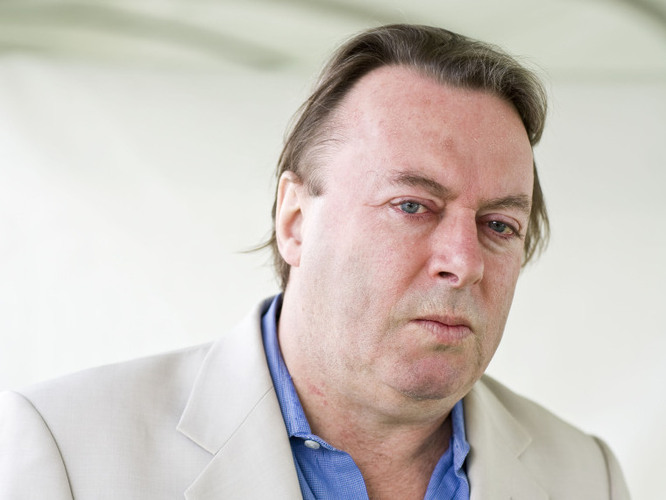There is an episode of pre-abysmal The Simpsons in which Homer, fearing he won’t leave much in the way of a legacy, decides to become an inventor: to give his work impetus, he Blu-Tacks a chart to the wall, ranking his own achievements against those of Thomas Edison (unsurprisingly) always pulling up short of his posthumous mentor-come-nemesis.
For a generation of writer-Homers, I suspect, Christopher Hitchens plays the role of Edison – at once inspirational and intimidating – a totem for anyone who believes that non-fiction and reportage need not eschew a certain poetry. Most of us will surely do no better than Homer’s sole innovation – a chair that can’t be tipped over, and even that had was a replica. But, hell, Hitch at the end of the chart at least keeps us trying.
Mortality, penned in the period between Hitchens’s 2010 esophageal cancer diagnosis and his death in December last year from the effects of pneumonia, contains the polemicist’s reflections on his own demise; the months of what he stoically calls "living dyingly" – months that see a heavy-hearted farewell to one life and reluctant embrace of another, in the shadow of the "banality of cancer".
While terminal illness memoir-as-concept sounds mawkish, self-pity, if indeed much was felt, is left off the page: Hitchens rejects the sanitised and sentimental pathetic fallacy of cancer as a battle – "it is battling me," he concedes – and instead gives us chemo-burning on the inside and the retreat of nose hair. As ever, the author is a frank, unflinching but humane guide, engaging with a subject, the ultimate subject even, without feeling the need for self-flattery. Instead, Hitchens uses the seven crisp essays in this collection to rove over vast territory, from the etiquette of cancer (for both the dying and their visitors) to a punchy restatement of atheistic principles in the tempting face of oblivion. With many an insensitive zealot no doubt relishing the prospect of a Hitchian deathbed-conversion, he finds time to dismiss Pascal’s wager as presuming "both a cynical god and an abjectly opportunist human being".
Elsewhere, we learn that Hitchens’s terminal suffering was enhanced by the post-traumatic hangover of his water-boarding for a Vanity Fair column on torture, which he uses to make good on more strident criticism of the Bush-era interrogation programme – comparing it to the worst of the Inquisition and neatly relating two of his controversial standpoints in the process, namely those of religion-baiter and Iraq-war cheerleader.
Iraq: that lesion with the left that still confounds even his closest friends. On this, see Graydon Carter’s introduction that politely glosses it not once, but twice, as a "curious" right-turn. It is left alone by Hitchens here, too, the writer perhaps believing that his spirited defence in memoir Hitch 22 covered all the ground he wished to travel in that direction.
There is, again, to be no final hour conversion for those seeking one. What even those who raged against his hawkish stance on religious dogma must concede, however, is that Mortality showcases the dexterity of a mind still playing with language, digging ever deeper in the library and thinking for itself even as the clock strikes twelve.
If a pugnacious public image made Hitch, as he was affectionately styled, an easy caricature (witness his recent mauling in the flowery and forgettable Mike Bartlett production, 13), it is Chapter Five’s ruminations on that voice which hit deepest. While the plummy tones left him open to accusations of silver spoonism, few of his detractors could fail to be moved by the author’s account of the physical disintegration of something so obviously central to his being. "For me," he offers, "to remember friendship is to recall those conversations that it seemed a sin to break off: the ones that made the sacrifices of the following day a trivial one." An excoriating essay included in last year’s Arguably on the financial crisis gave readers a tantalising view of a writer with plenty left to say – hearing of that singular sound so brutally ravaged by something as banal as the failure of a piece of "gristle" brings both a guilty wash of gratitude for one’s own health and a stomach-punch sadness at literature’s loss.
Chapter Eight, unfortunately, gives the book’s ultimately deflating game away: it is unfinished and fragmentary. Hitchens’s wife, Carole Blue, gives a beautiful closing essay and reveals this book to be merely a work in progress – a consequence of a determination to make his own death just one of the things he busied himself with as night came on. Mortality will, for sure, leave you without that oft-romanticised movie trope of ‘closure’. But that, it seems, is death. If this all-too-slender tome is a meal interrupted, take comfort from the fact that even a too-early-discarded Hitchens note generally outclasses most of the non-fiction you will read this year. One last forward nudge on that chart, then.


